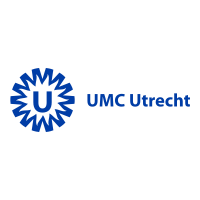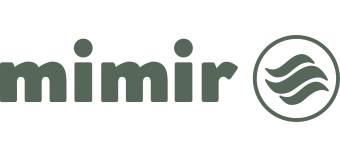
Jobs posted by UMC Utrecht
Mimir provides the automated job management of jobs on job boards for UMC Utrecht.
Latest jobs
Farmaceutisch medewerker
Als farmaceutisch medewerker verricht je diverse logistieke handelingen. Denk aan het ontvangen, labelen en verzamelen van patiëntspecifieke geneesmiddelen in de ziekenhuisapotheek. Samen met je collega’s zorg je voor een optimale beschikbaarheid van geneesmiddelen voor patiënten.
Je werkt op wisselende tijden. Doordeweeks werk je tussen 07.30 en 17.30 uur en in het weekend en op feestdagen tussen 08.00 en 14.00 uur. De werktijden en bijbehorende pauzes zijn afhankelijk van je ingeroosterde diensten.
Jobchain
0 applications
0 views
03-03-2026 UMC Utrecht
Verpleegkundig specialist of specialistisch verpleegkundige Hartfalen/Harttransplantatie
Je bent samen met de hartfalencardiologen verantwoordelijk voor onze patiëntenpopulatie die bestaat uit advanced hartfalen en harttransplantatie patiënten.
- Je fungeert als eerste aanspreekpunt voor onze patiënten middels twee dagelijkse telefonische spreekuren en consulten op het verpleegkundig poliklinisch spreekuur Hartfalen/ Harttransplantatie. Ook als de patiënten klinisch zijn zet deze betrokkenheid zich door. Je bent een belangrijke schakel in de zorg voor onze patiënten.
- Je stemt de zorg samen met de patiënt af, met aandacht voor persoonlijke behoeften en kwaliteit van leven.
- Je verricht anamnese en lichamelijk onderzoek en voert je beleid uit onder supervisie.
- Je coördineert het multidisciplinair overleg (MDO) hartfalen/harttransplantatie en bent verantwoordelijk voor het screenen van zowel klinische als poliklinische patiënten voor harttransplantatie en LVAD.
- Je bent verantwoordelijk voor het beheer van de Harttransplantatie wachtlijst.
- Je geeft onderwijs over hartfalen en zorg rondom harttransplantatie aan verpleegkundigen van de verpleegafdeling Cardiologie en Hartbewaking maar ook van extern.
- Je levert een actieve bijdrage aan kwaliteitsverbetering, deskundigheidsbevordering en (verpleegkundig) wetenschappelijk onderzoek. Je neemt deel aan projecten vanuit de afdeling en/of het Transplantatie Centrum Utrecht.
- Je werkt voornamelijk poliklinisch, tijdens kantooruren.
02-03-2026 UMC Utrecht
Anesthesiemedewerker kinderzorg WKZ
Je komt te werken op een geavanceerd OK complex voor kinderen in Europa, bestaande uit acht operatiekamers en een hartkatheterisatiekamer (HCK). Verder een Intra Operatieve MRI operatiekamer.
Naast onze eigen patiënten opereren we hier ook patiënten van het Prinses Máxima Centrum, het specialistische centrum voor kinderoncologie.
Deze samenwerking biedt jou de mogelijkheid om deel uit te maken van het OK team dat voor beide organisaties werkt. Een unieke mogelijkheid om je te specialiseren en je horizon te verbreden.
De anesthesiemedewerker is een onmisbare schakel in de anesthesiologische zorg voor de operatiepatiënt.
Samen met de anesthesioloog vorm je een hecht team dat de verantwoordelijkheid draagt voor kwaliteit en veiligheid van de patiënt binnen de perioperatieve zorg. Dit omvat de preoperatieve zorg, peroperatieve zorg en postoperatieve zorg.
De anesthesiemedewerker bewaakt de vitale functies van de patiënt en onderhoudt tegelijkertijd de anesthesie. Dit doe je zowel op basis van richtlijnen, protocollen en Evidence Based Practice (EBP) als met gemaakte afspraken met de anesthesioloog.
Een anesthesiemedewerker is bevoegd en bekwaam in het bewaken van de vitale functies en het onderhouden van de anesthesie.
02-03-2026 UMC Utrecht
Recoveryverpleegkundige Kinderzorg WKZ
Werken op de recovery van het WKZ is bijzonder en uitdagend. Met een eigen OK-centrum en een gespecialiseerde recovery voor kinderen (0 tot 18 jaar) en obstetrische patiënten, krijg je te maken met een breed scala aan postoperatieve zorgbehoeften. De zorg voor kinderen vraagt om specifieke vaardigheden; je houdt rekening met variaties in gewicht, ontwikkelingsfasen en de complexe zorg rondom aangeboren aandoeningen en oncologie. Naast het verzorgen van de kinderen, informeer en begeleid je ook hun ouders.
Je zult niet alleen werken op de recoveryafdeling, maar je ondersteunt ook in het pijnteam, waarbij je advies geeft over pijnbestrijding aan verpleegkundigen en ouders op andere afdelingen. De samenwerking met andere specialismen binnen het OK-complex is intensief en professioneel. Daarnaast bieden we volop mogelijkheden voor scholing en cursussen om jezelf verder te ontwikkelen.
02-03-2026 UMC Utrecht
Verpleegkundige – poli Oogheelkunde
Als verpleegkundige op de poli Oogheelkunde ben je een vast aanspreekpunt voor patiënten binnen hun behandeltraject. Je werkt afwisselend op de behandelkamer, ter ondersteuning van spreekuren en aan de telefoon voor triage en inhoudelijke vragen. Juist die afwisseling maakt het werk zo boeiend.
„Het is heel dynamisch. De ene keer sta je op de behandelkamer bij kleine ingrepen, de andere keer zit je aan de triagetelefoon of ondersteun je een spreekuur,” vertelt een verpleegkundige op polikliniek oogheelkunde. Op een dagdeel zie je zo’n 15 patiënten of handel je 15 tot 20 telefoontjes af.
Je assisteert bij intra- en extraoculaire ingrepen, zoals injecties of het afnemen van een biopt en voert verpleegkundige handelingen uit tijdens spreekuren. Daarnaast coördineer je acties rondom behandelingen en overleg je veel met artsen, arts-assistenten.
„Heel vaak overleg je met de arts, zeker als je niet bevoegd bent om zelf antwoord te geven op vragen van patiënten.”
Het patiëntencontact is intensief, maar waardevol. In korte tijd weet je veel te betekenen. „Je hebt soms maar tien minuten, maar daarin kan je heel veel. Door te vragen en te luisteren hoor je het verhaal achter de aandoening.” Je denkt mee over hoe patiënten het thuis redden en houdt oog voor hun situatie buiten het ziekenhuis.
Aan het einde van de dag kijk je met voldoening terug. „Alles met een goed gevoel afgerond, een goed antwoord gegeven. En morgen leer je weer iets nieuws.”
02-03-2026 UMC Utrecht


